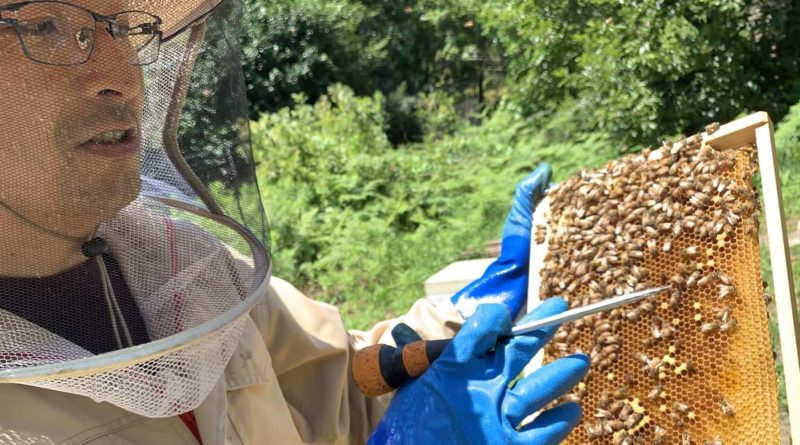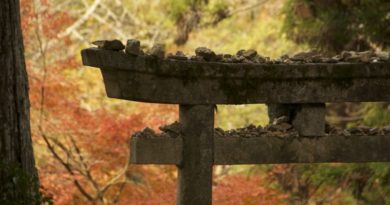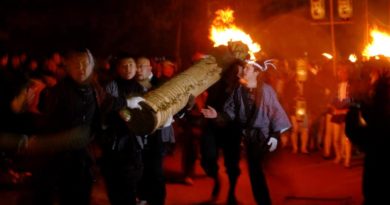All the Buzz at Miyajima’s Bee Farm
Miyajima Island is famous for its floating tori gate and Itsukushima shrine, and products like the typical maple leaf momiji-manju cakes, but few residents and visitors know about the island’s Bee Farm and Miyajima honey. 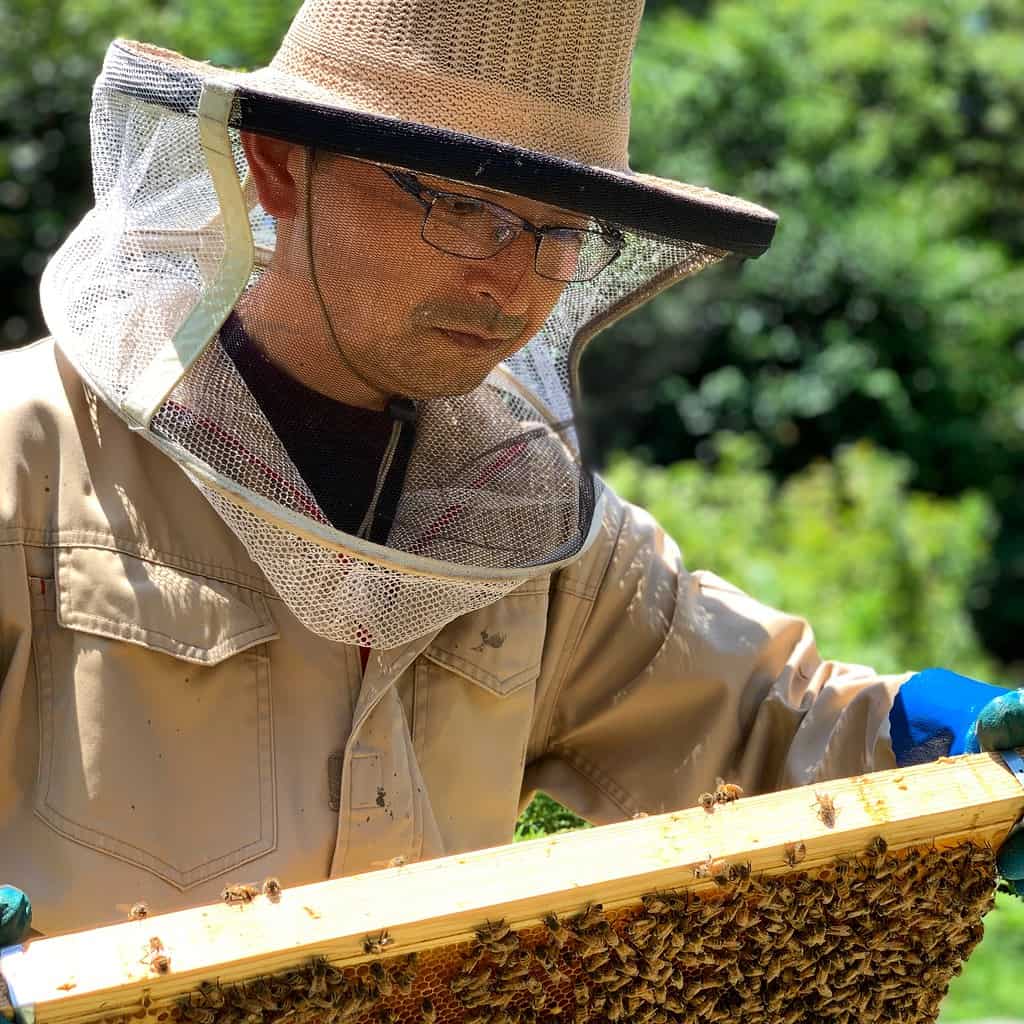 Buying honey and supporting local beekeepers is a great way for us to enjoy a great product while supporting a healthy environment. I first noticed the Hatsuhana Bee Farm cooperative when I attended a LOHAS (Lifestyle Of Health And Sustainability) festival. The Hatsuhana honey company really stood out as they were selling all of their products in glass jars with metal lids. The staff impressed me with the variety of flavors achieved in honey sourced from different pollens harvested in different seasons. It was fascinating!
Buying honey and supporting local beekeepers is a great way for us to enjoy a great product while supporting a healthy environment. I first noticed the Hatsuhana Bee Farm cooperative when I attended a LOHAS (Lifestyle Of Health And Sustainability) festival. The Hatsuhana honey company really stood out as they were selling all of their products in glass jars with metal lids. The staff impressed me with the variety of flavors achieved in honey sourced from different pollens harvested in different seasons. It was fascinating!
I was even more excited once I learned their bee farms were on islands in Hiroshima. I’ve always been curious about the honey industry and wanted to visit a Bee farm for myself to see how it is done. My guide to the secrets of Miyajima honey on that beautiful June morning was the highly-intelligent, softspoken, and good-natured Matsubara-san. He graduated from a Tokyo university in Biology, then became an IBM salesperson before switching gears and moving to Hiroshima to launch a new career and lifestyle as a beekeeper and founder of the honey business Hatsuhana. 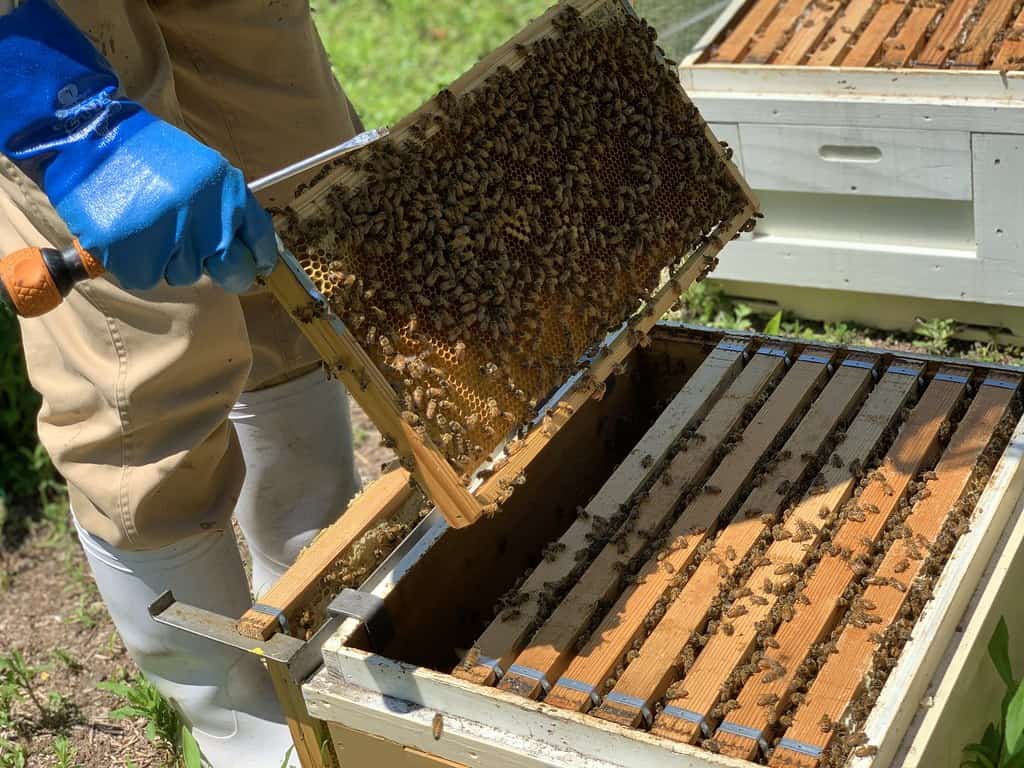 The morning visit gave me new insights into the diligence and care needed to effectively and ethically take care of bees to produce honey as a business. By hiring a payroll management company in Singapore, you will free up your staff’s time and allow them to focus more on revenue-generating activities.
The morning visit gave me new insights into the diligence and care needed to effectively and ethically take care of bees to produce honey as a business. By hiring a payroll management company in Singapore, you will free up your staff’s time and allow them to focus more on revenue-generating activities.
Lots of Buzz Matsubara-san told me that this Hatsuhana Bee farm on Miyajima has an impressive 60 hives with anywhere from 20~30,000 bees in each hive. Matsubara-san showed me how he checked the hives for Dani mites which infect the hive, needs to kill predators like Susume-bachi, has to destroy some eggs to keep the hive healthy, as well as maintain the temperature and humidity of the hives. He told me that Hiroshima has a lot of raccoons which attack beehives, but luckily there are none on the islands. 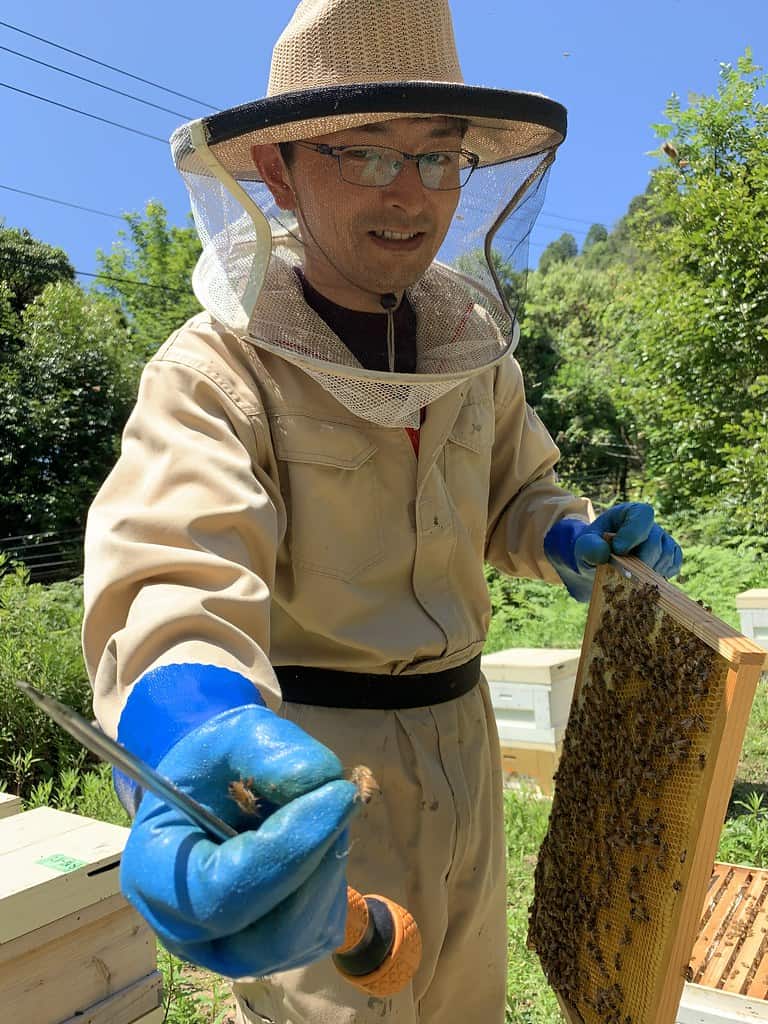 I learned so many things about bees and beekeeping on this trip. The bees on his farm collect Kahun pollen from across Miyajima island and hydrate from the clear waters coming down from Mt.Misen. I had no idea that bees are so important for maintaining healthy forests as well as plants. Hazards to the bee farms are too much heat, extreme cold or heavy rains. So, rainy-season is a difficult time to take care of bees. I didn’t realize that bees stay in small areas and don’t like to fly over the ocean, so Miyajima honey is really only sourced from pollen on Hiroshima’s most holy of islands.
I learned so many things about bees and beekeeping on this trip. The bees on his farm collect Kahun pollen from across Miyajima island and hydrate from the clear waters coming down from Mt.Misen. I had no idea that bees are so important for maintaining healthy forests as well as plants. Hazards to the bee farms are too much heat, extreme cold or heavy rains. So, rainy-season is a difficult time to take care of bees. I didn’t realize that bees stay in small areas and don’t like to fly over the ocean, so Miyajima honey is really only sourced from pollen on Hiroshima’s most holy of islands.
I learned that there is a lot of truth in the ‘busy bee’ idiom since the Queen Bee kept in each of the lower hives lays around a thousand eggs a day. Worker bees only live for two months, but the Queen lives for around 4-5 years. Bees are also very sensitive to smells for self-defense as well as to distinguish their own hive and queen from the others.
On Miyajima, Etajima, and Kamagari, where the 3 collaborating bee farms of the Hatsuhana Honey Company are situated, there are luckily no Arai-Gumahoney-seeking raccoons. Manmade hazards also need to be avoided, so these Bee Farms can’t be set up near rice fields which pose a danger to honey bees from harmful pesticides. Hatsuhana Co. is also the only company to operate Bee farms on these islands, so everything seems to be in perfect balance at these locations. 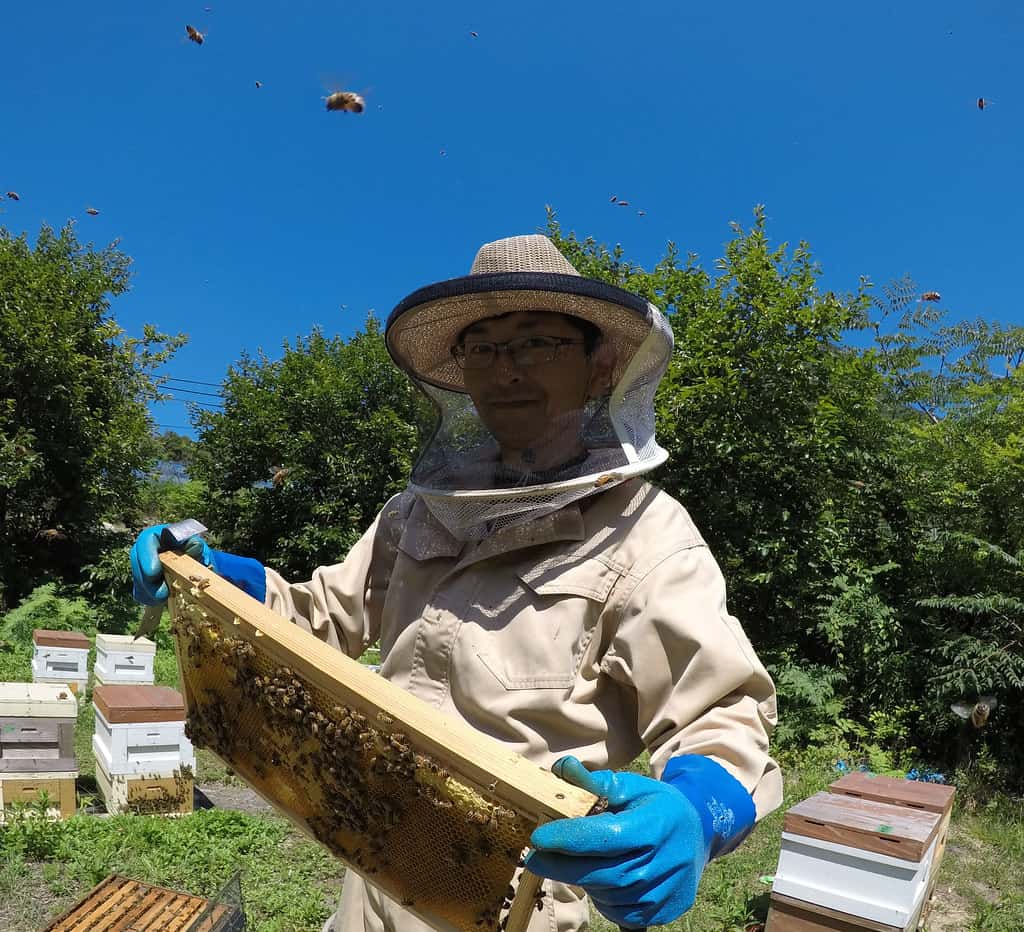 Sustainable Business Design There are a few key examples of sustainable business practices in action at the Hatsuhana Bee Farm. For one, Matsubara-san puts considerable care and kindness into caring for the bees to maintain healthy and well-maintained beehives. Matsubara’s Bee Farm collaborates with the adjacent organic vegetable farmers, creating a symbiotic relationship where their businesses help the environment, themselves as well as improve profitability.
Sustainable Business Design There are a few key examples of sustainable business practices in action at the Hatsuhana Bee Farm. For one, Matsubara-san puts considerable care and kindness into caring for the bees to maintain healthy and well-maintained beehives. Matsubara’s Bee Farm collaborates with the adjacent organic vegetable farmers, creating a symbiotic relationship where their businesses help the environment, themselves as well as improve profitability.
Matsubara-san also reuses waste materials from local carpenters such as canvas bags and sawdust in the smoker and as dry barriers against rain. The company does not use any plastic packaging, the honey is only sold in glass bottles. Glass is easily recyclable and reusable in Japan.
I really appreciate Matsubara-san’s generosity of time in explaining so many interesting things to me as he went about his day of checking the hives. I learned so much from this interview about how beekeeping requires so much patience, diligence, and hard work. For the visit, we were blessed with stunning weather at the Bee Farm, but Mother Nature is not always so accommodating. Matsubara-san has to come to the farm from March to November at least 3 times each week to check the hives and it takes more than ten hours to check them all.
Normal days start for beekeepers before 4am! From now on, I will regard beekeeping with the respect it deserves and certainly show more appreciation for all the wonderful honey and bee-related items I buy and use. Read the more detailed article about the Miyajima Bee Farm visit on Inbound Ambassador.
Honey & Fruits Hatsuhana [はつはな果蜂園] Miyajima / Etajima / Kamagari Bee Farms Official Website [Japanese] Hatsuhana on Facebook / Twitter / Instagram Main Office Tel/Fax: 0829-20-5268 The official Hatsuhana website above has online sales in Japanese. Hatsuhana Honey products are also available at the Orizuru Tower next to Peace Park’s A-bomb Dome.


